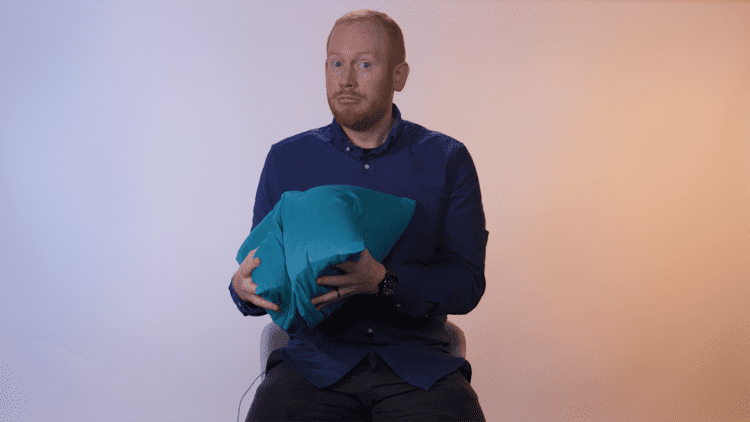If you need cash fast, you may be wondering what your best options are. Before taking on debt, start by assessing your existing accounts.
Here, experts weigh in on the pros and cons of tapping the most common account types.
First and foremost: Use your emergency fund
As you probably know, it's helpful to have a rainy day fund with several months' worth of expenses saved up. It's your financial backstop and the first place to turn if you're in need of some money.
"Your emergency fund is for times like this," says financial advisor Amy Shepard of Arizona's Sensible Money. "There's no penalty or negative impact for withdrawing" that money, so long as you keep it in a standard or a high-interest online savings account.
Your emergency fund is for times like this.Amy ShepardFinancial advisor, Sensible Money
Unfortunately, not enough Americans have the savings they need to handle an unexpected expense. Only 41% have enough money put away to handle a $1,000 emergency, according to data from Bankrate, and 28% have no emergency savings at all.
More from Grow:
Calculate how much you could get from coronavirus stimulus checks
4 'tiny habits' that can help you save more money
5 cheap, creative activities to entertain kids at home
If you don't have any cash savings, establishing an emergency fund should be your top financial priority once you're in a more comfortable place financially, says Niv Persaud, a certified financial planner and managing director at Georgia-based Transition Planning & Guidance.
"Promise yourself that you need to build your emergency reserve," she says. An easy way to get started is by taking your tax refund and putting much or all of it into savings. Or you can set up automatic transfers from your paycheck to divert money into a savings account a little bit at a time.
If you don't have an emergency fund, here are the pros and cons of tapping other accounts.
Certificates of deposit (CDs)
- Pros: CDs may contain a good amount of savings and some have no-penalty withdrawal options.
- Cons: Penalties may apply, depending on your financial institution.
If you have money in CDs, or certificates of deposit, the good news is that you may be able to get some or all of that money out if you need it. But the bad news is that you might have to pay a penalty.
CDs tie your money up for a fixed period of time, usually a year or two, in exchange for a higher interest rate than you'd receive in a savings account. Banks will charge you a penalty for withdrawing early, usually charged as a number of days worth of interest, though some offer no-penalty options. Check the terms and conditions of your CDs.

Video by Courtney Stith
Health savings accounts (HSAs)
- Pros: You can make penalty-free withdrawals if you carefully plan your purchases or you're using the money for qualifying expenses.
- Cons: If you spend the money on non-qualifying expenses, you could owe taxes and pay a penalty.
The good thing about having a health savings account (HSA) is that you can withdraw funds at any time, penalty-free, if you spend it on qualifying expenses.
The downside, though, is that if you don't intend to spend what you take out on qualifying expenses, your withdrawals will be taxed as ordinary income, and the IRS may hit you with a 20% penalty. Because of the stiff penalties and taxes, experts recommend you avoid tapping your HSA — or your financial savings account (FSA) — even if you need the money.
"I'm not a fan of withdrawing from your HSA" for ordinary, nonqualifying expenses, says Persaud, since that money is best used for health or medical expenses, where you'll get the most bang for your buck.

Video by Jason Armesto
Short-term investment accounts
- Pros: By selling off your short-term investments, you might be able to get your hands on some money quickly.
- Cons: You may hamstring your long-term financial goals and increase your tax liability.
Check to see if you have cash in a shorter-term investment or brokerage account — that's as opposed to your 401(k) or individual retirement accounts or other long-term savings. You could try to sell securities and withdraw the funds. "But be aware of capital gains and tax implications," says Shepard.
If you earned a return on your short-term investments, you may have a tax liability on the money you made. How much you owe will largely depend on how long you've held the investment.
If you hold a taxable investment for less than a year, you'll pay short-term capital gains rates, which is the same as your normal income tax rate. If you've held that investment for longer, what you'll owe could be 0%, 15%, or 20%, depending on your tax bracket. And if you've lost money on your investments, you may be able to lessen your tax burden through a process called "tax-loss harvesting."
If your most immediate concern is getting your hands on some cash, Shepard says having short-term investments in a "brokerage account is second to emergency savings" in terms of how to prioritize your withdrawals. Beware, though, that selling in a bear market might well mean locking in a loss. That's partly why experts advise you to invest for the long term, so that your investments have time to rebound.
Retirement accounts are your 'absolute last resort'
- Pros: You may be able to withdraw some money, penalty-free, under the right circumstances.
- Cons: You could face penalties, taxes, and set yourself back from achieving your long-term financial goals.
As part of the $2 trillion stimulus package signed into law by President Trump, consumers will be able to make withdrawals of up to $100,000 from their retirement accounts, penalty-free.
But experts say to try to avoid dipping into your retirement accounts, like a 401(k) or an IRA, at all costs. Shepard says retirement accounts should be your "absolute last resort" if you find yourself in financial trouble.
You're effectively borrowing from your future self. In other words, taking money out now sets you back, as those funds won't have a chance to grow and compound over time.
Normally, withdrawing money from your retirement accounts means that you incur a 10% penalty (if you're under 59½) and taxes, although there are a couple of exceptions to be aware of. It's possible to loan yourself money from your 401(k) for a big expense, like a down payment for a home. You can also take a hardship withdrawal if your situation meets certain criteria, but you'll be taxed on the distributions.
And if you have a Roth IRA, you can withdraw your initial contribution penalty and tax-free if it's been at least five years since then. The earnings on that contribution, however, can't be withdrawn until retirement.
But if you're deep in financial trouble, Shepard says that using credit as responsibly as possible to tide you over may be your best option. First, though, she says, tap those cash savings you should have stashed away for a rainy day, or focus on building those savings up as soon as you can.
Persaud agrees: "Really focus on building that emergency fund."
The article The Pros and Cons of Tapping Into Savings Accounts for Fast Cash originally appeared on Grow by Acorns + CNBC.

